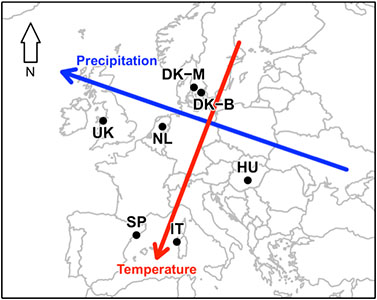Disturbed ecosystems more sensitive to climate change?
04-01-2015

A new paper led by György Kröel-Dulay and co-authored by professor Jeff Dukes (also of Forestry and Natural Resources), explores whether an ecosystem's dynamic state determines its sensitivity to climatic changes. By tracking the long-term responses of vegetation to experimental warming and drought in 7 shrubland sites from across Europe, the authors found that ecosystems recovering from disturbances were most sensitive to climatic changes. Their work suggests that the disturbance state of an ecosystem should be taken into consideration when modelling how plants will respond to climate change. You can find the paper in Nature Communications online: http://www.nature.com/ncomms/2015/150324/ncomms7682/abs/ncomms7682.html
György Kröel-Dulay, Johannes Ransijn, Inger Kappel Schmidt, Claus Beier, Paolo De Angelis, Giovanbattista de Dato, Jeffrey S. Dukes, Bridget Emmett, Marc Estiarte, János Garadnai, Jane Kongstad, Edit Kovács-Láng, Klaus Steenberg Larsen, Dario Liberati, Romà Ogaya, Torben Riis-Nielsen, Andrew R. Smith, Alwyn Sowerby, Albert Tietema, Josep Penuelas. Increased sensitivity to climate change in disturbed ecosystems. Nature Communications, 2015; 6: 6682 DOI: 10.1038/ncomms7682
Article and photo provided by Jeffrey Dukes, Professor of Forestry and Natural Resources and Biological Sciences.